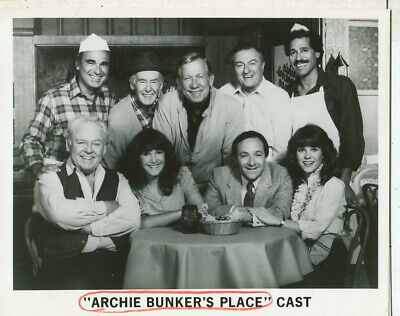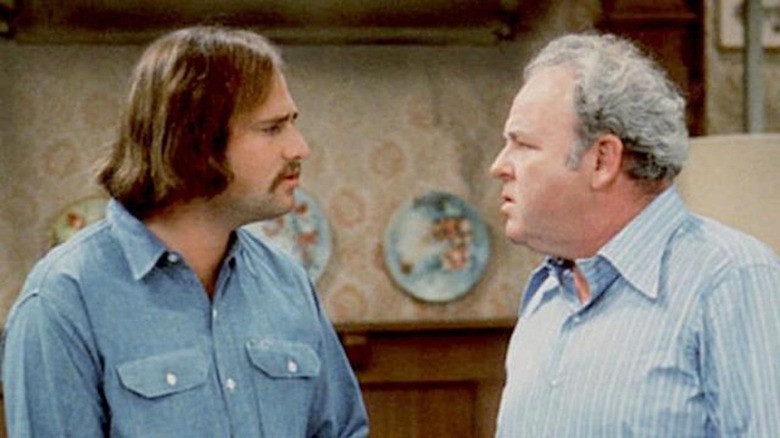
The Media Dramas of Norman Lear: The Revolutionary TV Producer Who Changed the Game
Norman Lear is a name synonymous with the revolution of American television in the 1970s. As one of the most influential producers and writers in TV history, Lear’s impact on the small screen is unparalleled. With a portfolio of groundbreaking shows, he used the power of media to address sensitive societal issues, challenge norms, and alter the course of television history forever.
From tackling topics like racism and gender inequality to offering a raw depiction of family dynamics, Norman Lear’s media dramas weren’t just about entertainment—they were about social change. So how did Lear do it, and why are his shows still revered as some of the most iconic and influential TV series ever created?
Let’s dive into the media dramas of Norman Lear and explore how his visionary approach continues to influence modern TV.
Norman Lear: A Visionary TV Producer Ahead of His Time
Norman Lear’s career as a producer and writer began in the late 1960s, but it was during the 1970s that he truly cemented his place in TV history. He entered a television landscape dominated by family sitcoms filled with wholesome, feel-good content. However, Lear was determined to use his platform to challenge the status quo. He believed TV could do more than just entertain—it could inform, provoke thought, and stimulate social change.
Lear’s ability to take on taboo subjects while blending humor with meaningful social commentary made his shows stand out. He crafted characters and storylines that forced viewers to confront their own biases, engage with real-world issues, and laugh while doing so. Let’s explore how Lear’s media dramas disrupted the television industry.
Revolutionizing Television with ‘All in the Family’
Perhaps Norman Lear’s most famous and groundbreaking show is All in the Family, which premiered in 1971. The show, which centered around the bigoted and often controversial character Archie Bunker, became an immediate cultural touchstone. By tackling taboo subjects like race, gender, and politics, All in the Family broke new ground in television. Archie Bunker, played by Carroll O’Connor, was an unapologetically flawed character who was both loved and despised by viewers. His views were offensive, but Lear’s writing showed the nuances behind these beliefs, using humor to shine a light on prejudices in American society.
The Groundbreaking Approach to Controversy
All in the Family wasn’t just a sitcom—it was a social commentary. Lear used the show’s format to address issues like racism, sexism, and class struggle, subjects that were rarely discussed openly on television at the time. For example, the character of Edith Bunker, Archie’s wife, was a beacon of kindness and empathy, contrasting her husband’s rigid views with patience and understanding. The show also included characters like Gloria Bunker Stivic, Archie’s daughter, who represented the liberal, progressive youth of the time. This clash of ideas between generations, along with the show’s unapologetic portrayal of social issues, became its signature.
While the humor was often edgy and provocative, the underlying messages were clear: the world was changing, and All in the Family was a reflection of that change.
Lear’s ‘Maude’ and Feminism on TV
Following the success of All in the Family, Norman Lear continued to use television as a platform for progressive change with the 1972 sitcom Maude. Starring Bea Arthur as the titular character, Maude Findlay, the show centered on a strong, independent woman who wasn’t afraid to tackle issues like abortion, gender equality, and women’s rights.
Tackling Feminism with Humor
Maude was one of the first sitcoms to portray feminism in a serious light. The character of Maude was unapologetically outspoken and challenged traditional gender roles, making her one of the most empowering female characters on television at the time. In one of the most significant episodes, Maude underwent an abortion, which was a controversial topic in the 1970s. The episode aired during a time when the national debate over abortion was intensifying, and Maude’s decision to have an abortion was portrayed not as a political statement, but as a deeply personal choice.
The series was groundbreaking in its portrayal of women’s issues and helped pave the way for future TV shows to address similar topics with sincerity and complexity.
‘The Jeffersons’: Breaking Barriers in Race Representation
Another iconic show produced by Norman Lear was The Jeffersons, which aired from 1975 to 1985. A spin-off of All in the Family, The Jeffersons followed George and Weezy Jefferson, an African American couple who had “moved on up” to the upper class by relocating to a luxury apartment in New York City. While the show was comedic in tone, it delved deeply into issues of race, class, and social mobility.
The Legacy of George and Weezy Jefferson
The Jeffersons was revolutionary for its time in how it portrayed African American characters in a positive, middle-class light. George Jefferson, played by Sherman Hemsley, was a successful businessman who was confident, unapologetically proud, and often used humor to address the racism he encountered. The show gave viewers a fresh perspective on the African American experience, emphasizing success and upward mobility while still addressing racial prejudice.
George’s often combative but loving relationship with his wife, Weezy (played by Isabel Sanford), added another layer of complexity to the show, offering viewers a window into a loving, albeit sometimes rocky, marriage. The show also introduced supporting characters, like the Bunker family’s maid, Florence, who added to the mix of humor and social commentary on race relations.
‘Good Times’ and the Struggles of Black Families in America
In addition to The Jeffersons, Norman Lear was also behind the successful 1974 series Good Times, which focused on the lives of an African American family living in the Chicago projects. The show portrayed the struggles of the Evans family as they navigated poverty, systemic racism, and the complexities of family life.
Addressing Poverty and Systemic Racism with Humor
Good Times was one of the first sitcoms to openly discuss the challenges of living in poverty, particularly within African American communities. While the show’s tone was often lighthearted, it didn’t shy away from addressing systemic issues like housing, education, and unemployment. The characters were deeply relatable, and the show provided a unique and authentic perspective on life in inner-city America.
Florida Evans, played by Esther Rolle, was a mother who worked hard to provide for her family, even though her circumstances were difficult. Her son, JJ (played by Jimmie Walker), provided comic relief, but his character was also a reminder of how societal structures could limit opportunities for black youth. Good Times not only brought humor to difficult subjects but also gave a voice to communities often underrepresented in mainstream media.
Norman Lear’s Legacy in Modern TV
Norman Lear’s impact on television cannot be overstated. He is the architect of many revolutionary TV shows that addressed social issues head-on, opening doors for diverse storytelling in mainstream television. His work reshaped how we view race, class, gender, and family dynamics, setting a new standard for what television could achieve.
A Lasting Influence
Today, many of the issues that Norman Lear tackled on his shows are still relevant, and his influence can be seen in modern TV shows like Black-ish, The Goldbergs, The Middle, and The Conners. These shows continue to explore similar themes of social change, generational conflict, and cultural diversity, all of which Lear brought to the forefront of American television decades ago.
Conclusion: Norman Lear’s Revolutionary Media Dramas
Norman Lear’s media dramas have had a profound effect on television history, breaking down barriers, sparking conversation, and changing the way we look at society. By using television as a platform for social change, Lear’s work is a testament to the power of storytelling in influencing culture. His ability to address important societal issues with humor and empathy revolutionized the sitcom format, and his legacy continues to shape television to this day.
Frequently Asked Questions (FAQs)
1. What were Norman Lear’s most famous TV shows?
Norman Lear’s most famous TV shows include All in the Family, Maude, The Jeffersons, and Good Times. Each of these shows broke new ground in terms of social commentary and representation.
2. How did Norman Lear address controversial issues in his shows?
Lear used humor and sharp writing to tackle controversial issues like racism, sexism, and class struggles. His shows allowed viewers to reflect on societal issues in an engaging and thought-provoking way.
3. Why were All in the Family and The Jeffersons so groundbreaking?
Both shows were groundbreaking because they portrayed social issues in ways that had never been done on television before, addressing race, class, and gender with both humor and sincerity.
4. How did Norman Lear influence modern TV?
Norman Lear’s shows set the stage for modern TV by addressing social issues openly and authentically. His work paved the way for TV shows that tackle similar
